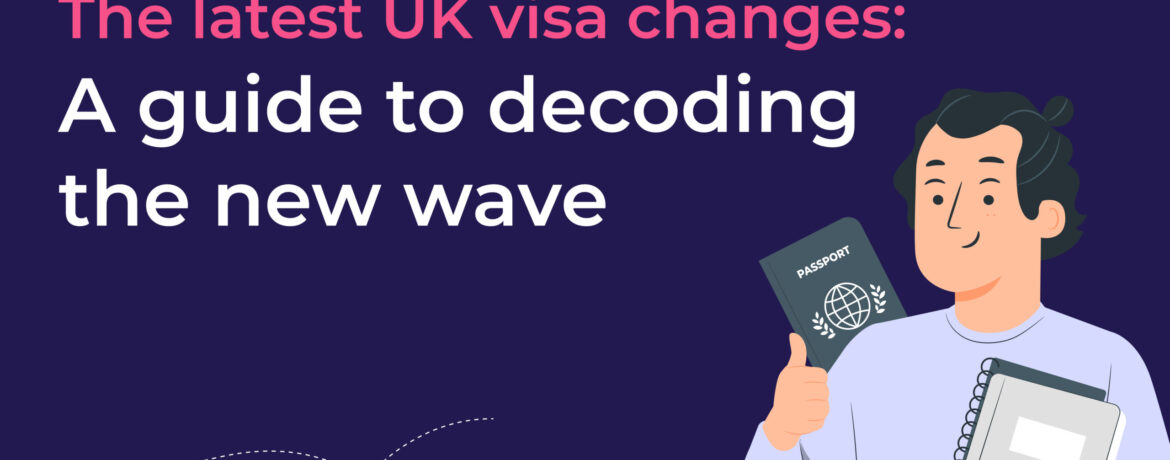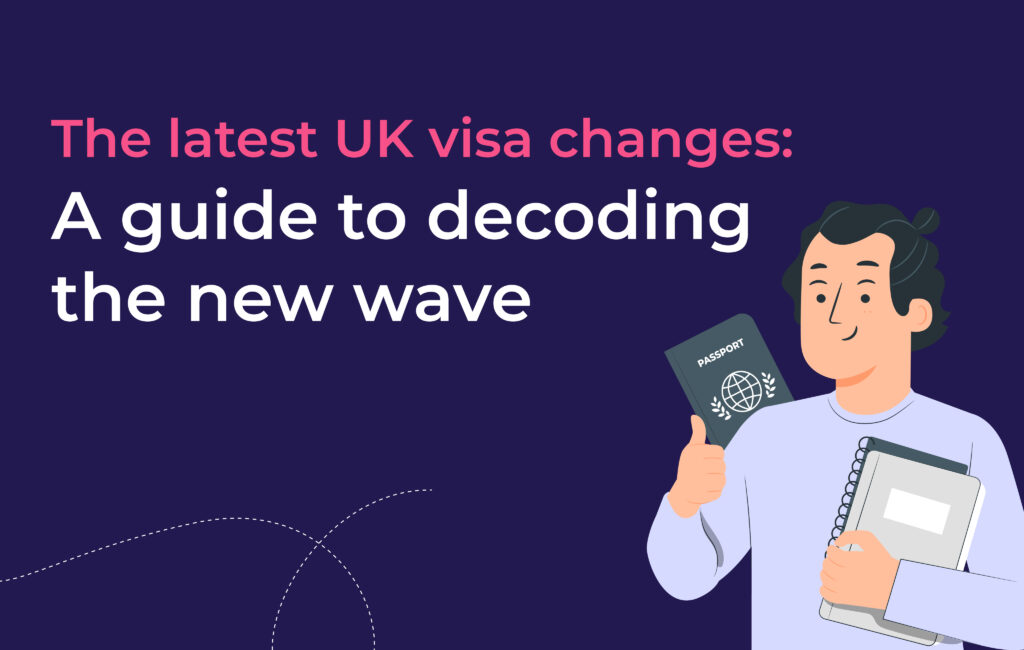
The latest UK Visa Changes: A guide to decoding the new wave

In the ongoing story of immigration in the UK, big changes are happening that will affect who can come and stay. Home Secretary James Cleverly is introducing new rules to make a big cut in how many people can move to the UK. It’s a bit like putting together a puzzle – each change is like adding a new piece.
They’re making it harder for skilled workers to come unless they earn more money. Family Visas are getting some improvements, but they will cost more. Also, families of care workers might not be allowed to come anymore. It’s as if the UK is giving its immigration story a fresh look. So, let’s explore these changes together – it’s not just about numbers; it’s the UK creating a new part of its immigration story!
In essence, the visa changes reflect the UK’s concerted effort to craft a fresh chapter in its immigration story. Beyond mere numerical adjustments, these alterations signify a deliberate recalibration of priorities, mirroring the nation’s evolving perspective on who is welcomed into its fold.
1. Skilled Worker Visa: Navigating New Salary Waters
Let’s dive into the big change happening with the Skilled Worker Visa – a crucial part of the new immigration rules in the UK. The main thing that is shaking things up is the minimum salary that workers need. Right now, if you want a job in the UK, it has to pay at least £26,200 a year, or £10.75 per hour, or match the “going rate” for that job.
But hold on tight, because in the spring, this minimum salary requirement is going way up to £38,700 a year. It’s like the salary needed for middle-skilled jobs, such as butchers and chefs, might not be enough if it’s below £30,000. But don’t worry, healthcare heroes like doctors and nurses are catching a break – they don’t have to worry about this higher salary requirement. It’s a bit like a stormy sea for some jobs but a safe harbor for our healthcare champions.
2. Family Visas: A Pricier Passage with New Income Thresholds
Let’s talk about Family Visas in simpler terms. If you’re a British citizen and want to bring your family to the UK, there are some money changes to be aware of. Now, you need to have a yearly income of £38,700 to sponsor family visas. This is a big increase from the previous requirement of £18,600.
Around 70,000 families took this journey in the year until June 2023. This change affects people who earn less money, like women, younger individuals, and those living outside London and the southeast. So, bringing family members with you is going to cost more, especially for certain groups of people.
3. Care Worker Restrictions: A Sea Change in Companionship
There’s a big shift happening for care workers coming from other countries. Now, they can’t bring their family members to the UK with them. This is a significant decision because, in the year until September, more than 101,000 visas were given to care workers, and an extra 120,000 visas were for their family members.
The government says the UK will still welcome talented care workers from other countries even with this new rule. But people are talking a lot about whether this is the right decision or not. It’s like a change in the sea of rules for care workers and their families.
4. Jobs on the Shortage Occupation List: Farewell to Discounts
Previously, if your job was on this special list, you could get a discount when applying for a skilled worker visa. But now, they’re getting rid of this discount. The government’s reason is to make things fair for everyone, so they decided to remove the 20% discount. This is to make sure that immigration doesn’t make it harder for British workers to find jobs. It’s like they’re changing the rules to keep things more balanced.
5. NHS Harbor Fee Surge: Navigating Healthcare Costs
The NHS harbor fee, or the immigration health surcharge, the fee, that visa holders pay to use healthcare services in the UK, is going up. It used to be £624, but now it’s going to be £1,035.
The good news is that health and care workers don’t have to pay this fee. So, while it’s becoming more expensive for some visa holders, those who work in health and care won’t be affected. It’s like they’re adjusting the cost of using healthcare services if you’re from another country.
6. Scrutiny on Graduate Visas: Examining Extended Stays
The government is taking a close look at the visas given to students after they graduate to make sure the system is not being misused. In the year until June, more than 98,000 of these visas were given out, and now they’re planning some big changes.
Starting in January, things will be different for students. Most students won’t be able to bring their family members with them anymore, except for those doing postgraduate research courses. Also, students won’t have the option to switch to work visas before finishing their studies. It’s like they’re changing the story for students who want to stay in the UK after they graduate.
Conclusion:
In conclusion, the recent changes in the UK’s visa rules show a big part of its immigration story. They want things to be fair and flexible. Whether it’s adjusting the Skilled Worker Visa or making changes in Family, Care Worker, Shortage Occupation, and Graduate Visas, they are trying to bring in talent while keeping the economy steady.
If you have questions or need help, Call us at 0800 970 2727 or email us at [email protected] or you can fill out the form below.


